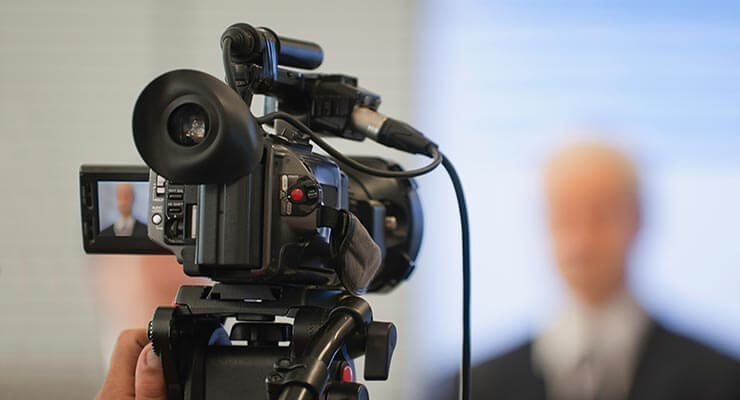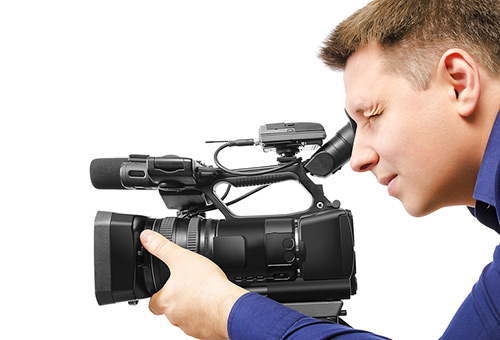The Duty of Lawful Videography in Depositions and Tests
Lawful videography has actually arised as a necessary device in both depositions and trials, offering a multifaceted approach to recording witness testaments. As lawful experts progressively recognize its worth, it motivates a much deeper assessment of exactly how these visual records can affect juror understandings and trial outcomes.
Relevance of Lawful Videography
Legal videography plays a pivotal duty in the documents and discussion of depositions and trials. This specialized area integrates technical abilities with legal knowledge to develop a trustworthy record of procedures that can considerably influence instance outcomes. The appearance of legal videography boosts the understanding of witness statement, allowing jurors and courts to observe not only the talked words yet likewise the behavior, feelings, and body language of the witnesses.

The importance of lawful videography prolongs beyond the court room; it likewise plays an important duty in protecting evidence for future referral, whether for charms or further lawful activity. Because of this, its integration right into the legal procedure is necessary for guaranteeing a reasonable and accurate depiction of the facts, ultimately adding to the pursuit of justice.

Process of Legal Videography
While catching the subtleties of depositions and trials, the process of legal videography includes numerous crucial actions that make certain top quality, precise recordings. Originally, an expert lawful videographer prepares by assessing the case materials and comprehending the details needs of the deposition or trial. This preparation includes familiarizing themselves with the participants and the context, which aids in capturing important information.
On the day of the recording, the videographer establishes up the needed tools, which commonly consists of high-def electronic cameras, microphones, and correct lights. Ensuring optimal angles and audio top quality is crucial, as it straight influences the performance of the recording. The videographer connects with lawyers and participants to establish protocols, ensuring that every person recognizes the recording procedure.
Throughout the deposition or trial, the videographer carefully tape-records the proceedings, paying very close attention to both spoken and non-verbal signs. legal videography. This consists of capturing the disposition and reactions of witnesses and lawyers. After the session wraps up, the videographer may modify the video for clearness and compliance with lawful requirements, creating a final item that precisely reflects the proceedings for future referral and use in lawful contexts
Advantages in Depositions
The consolidation of videography in depositions provides countless benefits that enhance the total process of gathering proof. One primary advantage is the capacity to capture witness testimonies with aesthetic and auditory integrity, offering a more precise representation of the witness's temperament, tone, and body language. This multidimensional approach enables attorneys and courts to assess reputation a lot more effectively than typical written transcripts alone.
In addition, videographed depositions function as an effective tool for protecting testimony. Must a witness become not available for test, their tape-recorded deposition can be played in court, making certain that their evidence continues to be available and pertinent. This aspect dramatically reduces the danger of shedding important details that could affect instance outcomes.
Moreover, using legal videography promotes much better prep work for attorneys. Examining video weblink clip footage allows legal teams to assess and refine their techniques, determining staminas and weaknesses in their situations. This primary benefit can lead to even more engaging presentations in court.
Lastly, videography improves the general professionalism and trust of the deposition procedure, instilling self-confidence in Going Here customers regarding the thoroughness of their legal representation. By leveraging innovation, lawyers can dramatically improve the effectiveness of depositions.
Effect On Trials
In several tests, the assimilation of videography can dramatically affect the discussion of proof and the court's understanding. Legal videography catches witness statements and essential proof in a vibrant layout, permitting jurors to involve with the product on several levels. This visual component enhances the narration facet of a trial, offering context and emotional resonance that traditional text-based evidence might do not have.
Additionally, video recordings can function as powerful devices for impeachment throughout cross-examination. When discrepancies arise in between a witness's previous statements and their courtroom testament, video clip proof supplies an objective referral that can guide jurors' viewpoints. This immediacy and clarity can strengthen the reliability of a party's narrative while concurrently undermining opposing arguments.
Additionally, the usage of videography can assist enhance complicated information, making it extra easily accessible to jurors who may battle to comprehend elaborate information provided exclusively via verbal testimony. By integrating visuals with auditory details, legal videography can enhance retention and understanding, inevitably influencing the jury's decision-making process. For that reason, the influence of videography in trials expands beyond More Info simple looks; it plays an important duty in shaping the legal landscape and end results.
Future Trends in Legal Videography
As we look toward the future of lawful videography, numerous emerging patterns promise to reshape its duty within the courtroom. One considerable fad is the integration of expert system (AI) in video evaluation and editing - legal videography. AI can enhance the procedure of identifying essential minutes in videotaped depositions, permitting lawyers to rapidly access pertinent material, therefore enhancing efficiency in instance prep work
Furthermore, the surge of digital fact (VIRTUAL REALITY) and increased truth (AR) modern technologies is anticipated to transform just how jurors experience evidence. By immersing jurors in a substitute environment, these technologies can offer a more profound understanding of complicated situations, causing even more educated considerations.

Moreover, the increasing need for remote depositions, increased by the COVID-19 pandemic, will likely proceed. Lawful videographers will need to adapt to brand-new software program and systems to make certain high-quality recordings in virtual setups.
Last but not least, the expanding emphasis on data security will certainly demand stricter protocols for storing and sharing video clip proof. As the lawful landscape progresses, legal videographers must remain abreast of these patterns to preserve their relevance and performance in the judicial procedure.

Verdict
In summary, legal videography serves a vital function in the judicial process, improving the stability of depositions and tests. As technology continues to progress, lawful videography is positioned to more transform its role within the legal landscape.
Comments on “Trusted Legal Videography for Capturing Precise Evidence.”